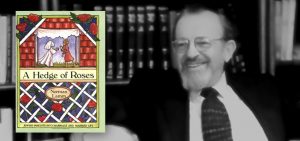In Celebration of Rabbi Norman Lamm’s Ninetieth Birthday

Rabbi Michael J. Broyde
Rabbi Dr. Norman Lamm celebrates his ninetieth birthday in during Channuka of this year. Rabbi Lamm שליט”א life model makes him a figure worthy of examination across the spectrum of the Orthodox community. Although he himself was a champion of the classical torah umadda vision of Yeshiva University, his career and personality makes him worthy of study by the spectrum of the Orthodox community for three deeply important reasons. First, he led the resurgence of Yeshiva University as a central place to study torah – the YU under his predecessors was a much weaker Torah center than it was under Rabbi Lamm, both in terms of quality and quantity. Second, Rabbi Lamm modeled – much more than almost any of those around him – the art of presenting torah values to secular people: he did not preach to the choir. Third, he was comfortable speaking about those aspects of torah that secular people did not always enjoy reading about, and which did not reinforce western values — consider for example, his magisterial defense of hilchot nidah A Hedge of Roses, written in 1966 (yes, that is not a typo – in the middle of the sexual revolution) to a secular audience at a time when these topic were very unpopular in secular culture.
It is time to step back and appreciate of Rabbi Lamm’s unique and steady focus of Torah study, all the while remaining a public servant of Modern Orthodox Judaism. It is astonishing that the level of his deep personal commitment to regularly learning Torah and scholarship remained central to him. Further he was always going to write in Torah and share his torah scholarship with others.
Three aspects of this in Rabbi Lamm’s Torah life are deeply worthy of admiration.
First, no matter how deeply involved he was in the leadership of our community (and for many decades he was very centrally involved) he always had time to write serious thoughts on important matters of Torah. Even as President of YU, he wrote more than a dozen books and dozens of articles. Unlike every other President of Yeshiva, he both came to the job as a leading intellectual light of our community and left as a more accomplished light. This comes from his well-known deep inner self desire to learn: even being a public figure could not stand in the way of his desire to learn torah. Those of us who ever spent time with Rabbi Lamm saw that while he was a diligent public servant who saved many a Modern Orthodox institution – Yeshiva University particularly during the scary times ago decades ago – his eyes shown brightest and he was most animated when discussing learning and not finances or politics.
Second, and I heard this many years ago from Rabbi Lamm at an Orthodox Forum, ideas are for sharing with others: Rabbi Lamm was not a monastic scholar. “It is very hard to assess the value of your own ideas without sharing it with others”, Rabbi Lamm told me “and do not be afraid of critical feedback.” There is no reason to be afraid of that interaction with one’s intellectual peers and Rabbi Lamm relished letters written to him that critiqued his articles. Ideas need to be critically examined and it is rare that the first person who has a novel idea is the one best equipped to determine if the idea is right. Rabbi Lamm knew that and was not scared of this.
Third, Rabbi Lamm knew that there is a value in apologetics as a form of writing. Rabbi Lamm, while discussing his article on killing Amalek, notes that he “offers no apologies for this exercise in apologetics.” Rabbi Lamm believes that the written word served as an important vehicle for defending Torah and that there was nothing wrong with apologetics in this exercise of defense. Apologetics allows people to analyze a topic a topic with an announced religious agenda in hand, to explain to the reader why the results reached by Jewish law and lore were consistent with or at least mitigate, the moral and ethical problems caused by a simple understanding of halacha.
Rabbi Norman Lamm has reached the age of בֶּן תִּשְׁעִים לָשׁוּחwhich is commonly understood to mean the age of stooping over due to old age. I suspect, however, looking at how productive Rabbi Lamm has been in retirement from the Presidency of YU fourteen years ago (and four years ago as the Rosh Hayeshiva of YU) that the interpretation of the Teferet Yisrael will prove to be more correct. Teferet Yisrael writes that by the age of ninety, a person will only have the time to speak in Torah study and prayer, because his time for other matters is over. Since his retirement in 2003, Rabbi Lamm has published more than another dozen books and much more. When I last visited Rabbi Lamm in his apartment in Manhattan a few short months ago, he was sitting at his dining room table with a pile of books that he was reading and he was happy to share his thoughts in torah with me. I look forward to his continued writing in torah for another thirty years.
Our community would not be what it is now without him and he should enjoy his time now, when he is no longer a public servant, to just a ben torah. Happy Birthday, rebbe!
Rabbi Michael J. Broyde was twice ordained by Rabbi Lamm in his capacity as Rosh Yeshiva of the Rabbi Isaac Elchanan Theological Seminary and is a law professor at Emory University.



I have always marveled at the collections of insightful sermons he gave even at a very young age. I am sure he was proud that a protege, with a Ph.D. written under the guidance of Prof. Moshe Halberthal, is following him at Yeshiva University just as he followed him as Senior Rabbi of the Jewish Center.
I do take some exception to attempts to compare Rabbi Lamm to either of his distinguished predecessors. Lives and environments and challenges are different. Without wanting to go into details, each was driven to enhance Torah and the Jewish people.
I essentially do not want to get into a discussion about Rabbi Lamm, but the false attack on his predecessors is not one that a mentsch would make.
It is Dr Revel who founded the first Yeshiva HS in America which for better or worse has been the essential model that Yeshiva HS have followed since. Dr Revel founded Yeshiva College which essentially is the model until the present.
Dr Belkin for better or worse expanded Yeshiva to university status. As far as scholarship goes, one can’t forget that Dr Belkin in his twenties was the Rosh Yeshiva with the highest level shiur before the Rav became a RY at YU. Dr Belkin encouraged his best students to go the Ravs shiur when that happened.How many Roshei Yeshiva would tell students don’t stay in my shiur go to someone else’s. Dr Belkin was a legitimate scholar too . His scholarship was in various fields Philo, philosophy see eg In His Image.
One thing is obviously true Rabbi Lamm was granted arichas yamim, much more than either Dr Revel or Dr Belkin.
As a makom Torah to pretend that YU was not a great makom Torah before Rabbi Lamm is ludicrous. In Dr Revels time, RavShimon Shkopp for a year, Rav Moshe So,oveichik, in Dr Belkins time, even leaving aside Dr Belkin as the Illui of Radon, the Rav, Rav David Lifscitz, RShatzkess many others including Rav Lichtenstein. Certainly I remember the Bochen Rav Mendel Zaks the son in law of the Chafetz Chaim.
Rabbi Broyde engaged maybe unintentionally in a slur against people who were fighting and spreading Torah when YU was the dominant. Yeshiva in America, see eg Charles Liebmans study in the American Jewish Yearbook in his article around 1985 when he discussed the numbers of people studying in each Yeshiva.
Unlike Sr Bill who is more diplomatic stating ” taking some exception” I find such statements as unnecessary. Rabbi Broyde wishes to celebrate 90 years of Rabbi Lamm. He has accomplished a lot, but no reason to attack his predecessors.
Even as a student at YU, I marvelled at his accessibility. I interviewed him once and found the experience fascinating. (Granted, the fact that we share first *and* last names- only a distant relation- may have helped.)
But more than personally, he was there. He regularly addressed the students in all sorts of fora and on all sorts of occasions. Once every month or so there were hashkafa talks in the dormitories, and R’ Lamm would lead them every second or third time. I think university presidents do that very, very seldom. And sure, we were cynical about the school and its leadership, as all students can be- but people would line up as he walked out and stop him, asking him all sorts of personal dilemmas he would try to work out with them. I particularly remember the time that he’d just spoken at a yahrtzeit event for one of the colleges. On his way out, one of my classmates stopped him and said that he had a kid in his NCSY group, a vegan, who refused to wear tefillin. What would R’ Lamm advise he do? R’ Lamm paused, thought for a moment, and then delivered a brilliant short summary of how the kid should be approached and talked with.